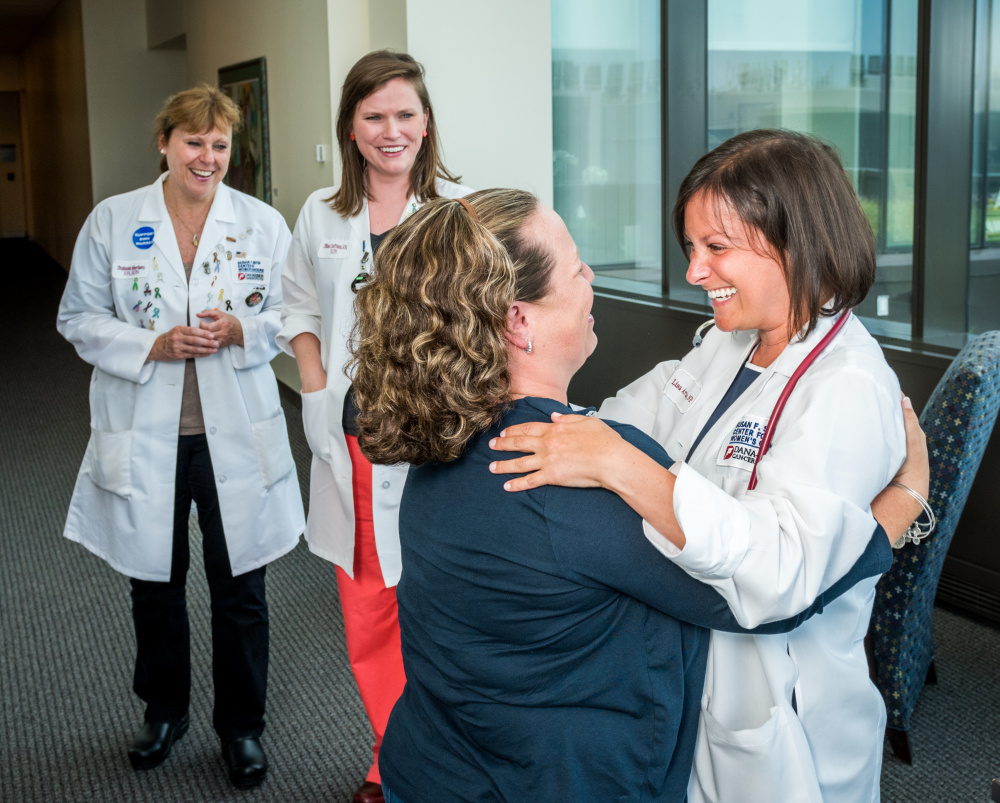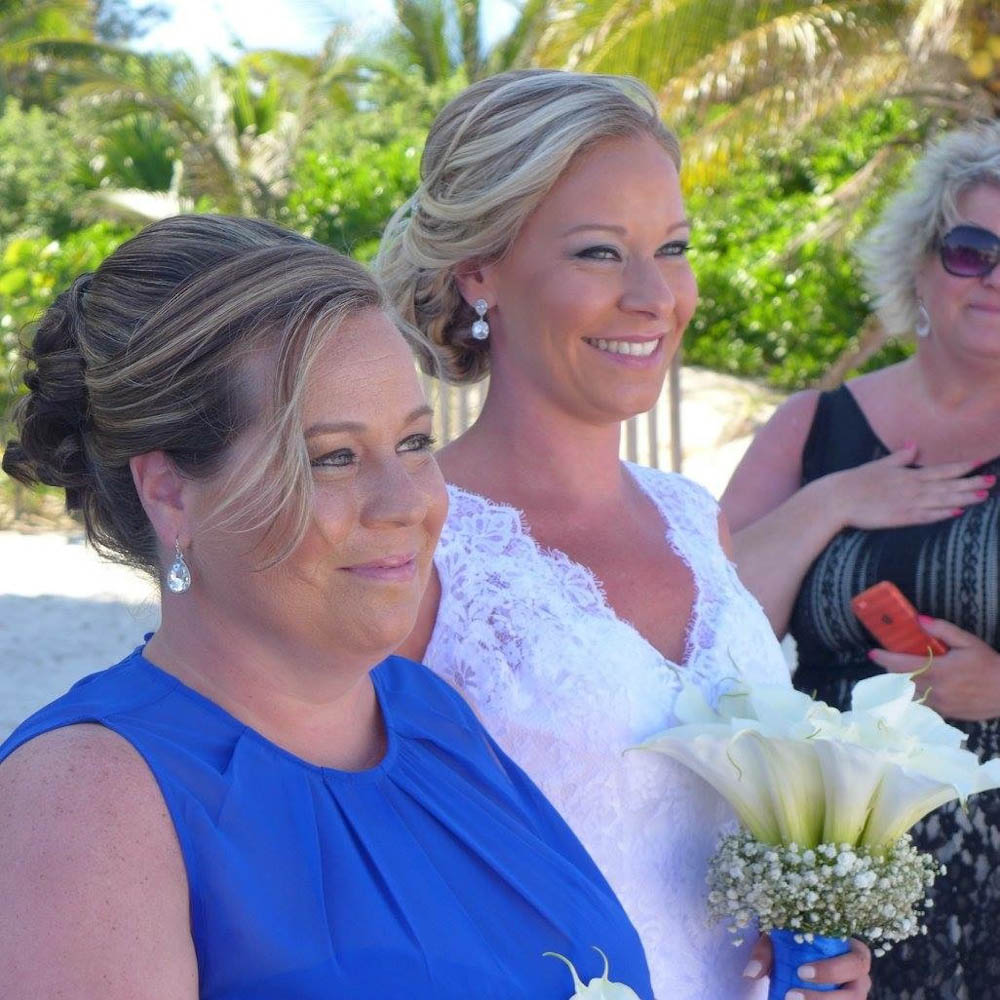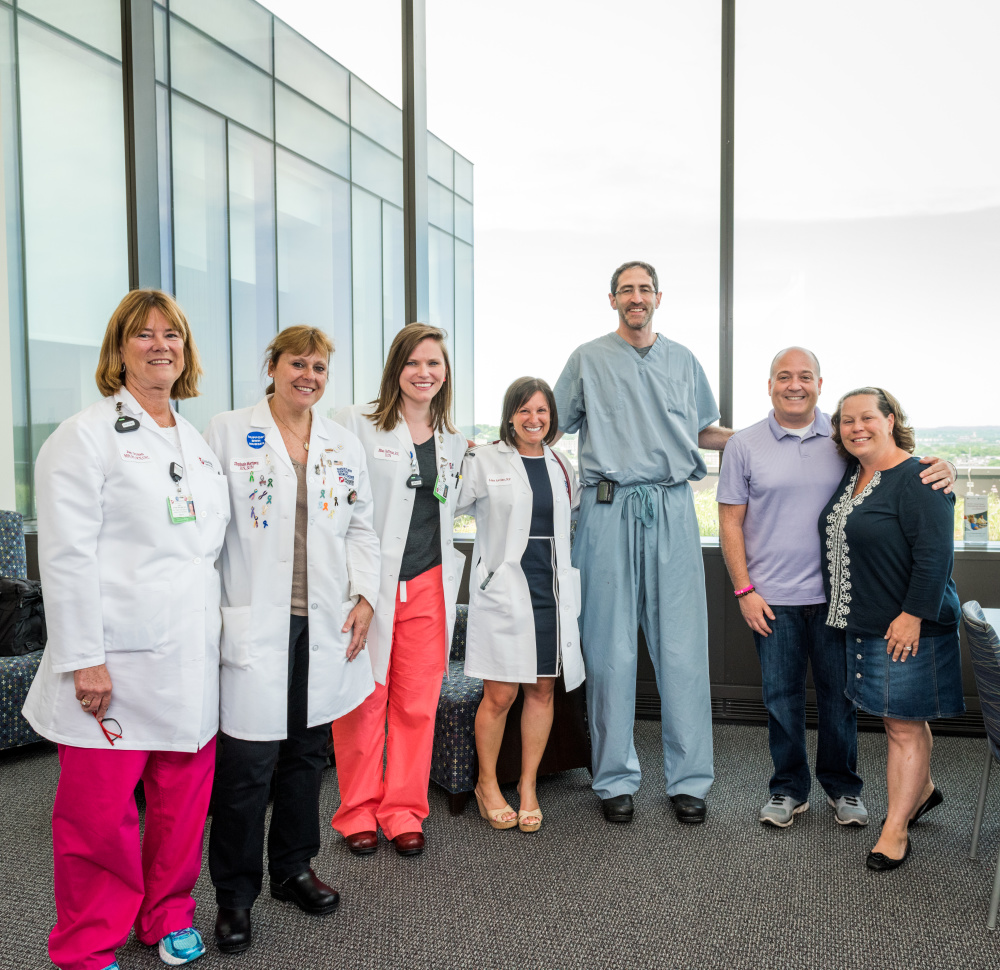
Kerri Antonuccio marked her 40th birthday this spring with a fresh lease on life.
For the first time since 2012, she didn’t feel too sick from cancer treatment to enjoy her big day. She was also able to travel to Mexico and serve as matron of honor at her sister’s wedding in May, as well as enjoy Mother’s Day with her husband and daughter. It was more than she could have dreamed of just a few years before.
In the midst of the celebrations Antonuccio sent a quick email to Lisa Arvine, NP, her nurse practitioner at Dana-Farber/Brigham and Women’s Cancer Center (DF/BWCC):
“If it wasn’t for all of you,” she typed, “I wouldn’t be here.”
Antonuccio’s sentiments about Arvine and the rest of her DF/BWCC care team are grounded in experience – and emblematic of a new development in cancer care. While clinical trials involving groups of patients have long helped to measure the effectiveness of drugs and drug combinations, new research is now allowing researchers and doctors to pursue treatments through individualized trials.

In Antonuccio’s case, this personalized approach made all the difference. She was a young mother expecting her second child when she was diagnosed in 2013 with choriocarcinoma, a rare, fast-growing cancer that originates in the uterus from an abnormal pregnancy. As the disease spread to her brain and lungs, she lost her baby and went through numerous unsuccessful treatments and surgeries.
“It was an incredibly hard process, with so many ups and downs,” recalls Arvine. “Kerri would initially respond to treatment, and then her tumor markers would go up. We kept reinforcing that no one was giving up and we were going to keep trying. She was amazing in how she dealt with it all.”
Neil Horowitz, MD, a clinical researcher in Gynecologic Oncology for the Susan F. Smith Center for Women’s Cancers and Antonuccio’s lead oncologist, says that there were no choriocarcinoma clinical trials for Antonuccio’s care team to try. “We went from one standard chemotherapy regimen to another, six or seven in all. All had been shown to have previous success with this disease, but didn’t work for her.”
Read more:
After stereotactic brain radiation and a stem cell transplant also failed to stop Antonuccio’s cancer, Horowitz says the team “had to think outside the box.” Dana-Farber had been working with a pharmaceutical company to develop drugs for a renal cell cancer clinical trial; clinical research fellow Kevin Elias, MD, found that the target for one of these new drugs was highly expressed in choriocarcinoma cell lines that were resistant to traditional chemotherapy. He also found that patients with more aggressive choriocarcinoma tended to have high levels of the drug target in their blood, and theorized that this drug might slow the growth of choriocarcinoma. Elias and Horowitz designed a personalized trial and Antonuccio started on the regimen in February 2015.
“Nobody with my condition had tried this before, and I remember asking Dr. Horowitz what would happen if I didn’t do it,” says Antonuccio. “He said, ‘Kerri, if you don’t do this the cancer is going to continue to grow.’ I appreciated his honesty and knew he and the team would do everything they could for me.”
For seven months, Antonuccio had weekly chemotherapy treatments and endured side effects including headaches, high blood pressure, and loss of appetite. Still, each monthly blood test brought good news for Antonuccio – the tumors kept decreasing in size. By May, evidence of the tumor was no longer detectable in her blood work.

In October, feeling “it was time for my body to take a break,” Antonuccio decided with Horowitz’s support to stop the trial. Her daughter had just started kindergarten, a milestone Antonuccio once feared she might not live to see.
She’s enjoyed many milestones since then, and has been cancer-free since her last treatment on Oct. 22.
“I want people to know there is hope,” says Antonuccio, who continues to get monthly blood work. “There was a point where I felt like nothing could help me, but I had to give it a shot. You never know what’s going to work, and my team never gave up.”
Due to their efforts, and hers, others in Antonuccio’s situation will now have an easier road.
“Because of her bravery and her willingness to take a leap of faith, we’re moving forward with a formal phase II trial of the same regimen – an international trial for women similar to Kerri,” says Horowitz.

Is there a new trial test for mylofibrosis?
Hi Marjorie:
This page: http://www.dana-farber.org/Research/About-Clinical-Trials.aspx has links to both Dana-Farber clinical trials and also the national database of clinical trials, both of which you can search for specific clinical trials. I hope that helps.
–Michael Buller